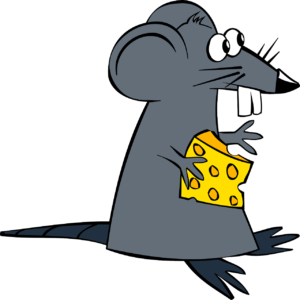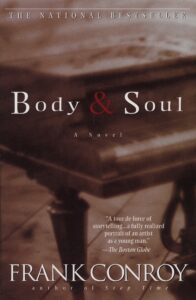by James Scott Bell
@jamesscottbell
 I hope you’re not munching a donut or toast right at the moment.
I hope you’re not munching a donut or toast right at the moment.
You probably saw the story about the closing of 400 Family Dollar Stores due to a rat infestation at one of their distribution centers. After a whistleblower’s report, the FDA went in and found a thousand “dead rats and birds” scattered inside.
Warehouse worker Robert Bradford says he was fired from West Memphis distribution center, Arkansas, after he shared footage last month of rats fighting together on the warehouse floor, scurrying up and down the aisles, and a dead rat that had been caught in a trap.
Kind of makes you want to run right out to a 99¢ store and buy a can of Vienna sausages, doesn’t it? The report also included this little item:
Bradford’s clip also showed an unidentified coworker trying to feed one of the rats a Pringle with his own bare hands.
Hey, the little fellas have to eat, right? And what else should you do with a Pringle anyway?
Family Dollar has since initiated a voluntary recall on certain products from the distribution center, with the comforting words, “We take situations like this very seriously and are committed to providing safe and quality products to our customers.”
Nice to know!
Never one to turn down an apt metaphor, I am now just as concerned about Rodents in the Warehouse operating right next door to the Boys in the Basement.
For review, The Boys in the Basement is Stephen King’s metaphor for the writer’s subconscious mind. Down below the conscious level the imagination always churns and gets ideas. Those ideas are stored in the warehouse part of our brains. There are things we can do to unlock the warehouse—like writing morning pages.
But what about rodents getting into that same warehouse? These are mental pests, and they’re real. If left alone, some of the best and most creative ideas and books will never make it to our mind, let alone the marketplace.
One big fat rat is fear. Fear that your ideas aren’t good enough. Or marketable enough. Or might offend someone. Or might make you seem like a drunken fool. Fear is always lurking around the writer’s mind, and needs to be dispatched forthwith.
One way to do that is by writing a half-page précis of your ideas. Not a synopsis, just your summary of why you think the idea might fly, who might like it, and—most important—why you are jazzed about it.
If you find, after doing this exercise, you’re not that excited after all, you can move on. At least it won’t be out of fear.
But do get a couple of people to give you feedback on it. Are they as interested as you are? If not, again, you can get along to the next idea.
Which leads us to another corpulent rodent—disorganization. If you leave your ideas lying around randomly, you’ll never give them the focused attention they deserve.
The answer is to clean up and organize your warehouse. Don’t leave any idea untended. When you find it, put it on a shelf. I suggest a master document just for ideas. I have one with opening lines, quick concepts (usually starting with What if?), possible characters, possible settings. I go over this from time to time and find the ones that still strike me and develop them further. These go into another file called “Front Burner Concepts.” That’s where I go when I’m ready to choose a new project to write.
Finally, a whole pack of rats like to strike when you experience burnout. If our brain gets tired from overwork, we don’t have anybody watching the warehouse. Lots of good stuff gets gobbled up.
I wrote about this in my book The Mental Game of Writing. Here’s a clip:
The thing to do about burnout is head it off at the pass. And the best way I know is to observe a Writing Sabbath. Just like when God knocked off for the week.
It can be on any day you choose. As I mention in the Discipline chapter, I choose Sunday.
On that day I do not do any writing or even thinking about writing (at least I try not to think about it. It’s the day when the Boys in the Basement get to work out in earnest).
It’s a good day to catch up on my reading.
And my relationship with my wife! We’ll take a trip to the beach, or go up in the hills and look at the view. We’ll watch a movie together, have a nice dinner….
If it’s football season, I’ll watch a game or two.
I try to get out in the sunshine.
What all this means is that the pressure is off.
Though sometimes my mind and my fingers want to write something. It’s sort of like the thoroughbred that is primed to run every day, but one day is just hanging out with a blanket and some hay. The legs tremble. The nose sniffs the air.
At times like that I keep my legs calm and my nose in a book.
What about during your writing week?
Two things if you can manage them: get exercise and get very quiet.
The benefits of even short bursts of exercise are well known. Walk around as much as you can, if that’s the least you can do.
Follow the Pomodoro Method. Write for twenty-five minutes, then take a five-minute break. Do some walking or deep breathing (with your eyes closed).
Also, I’m a big believer in the power nap. That’s a twenty-minute or so stretch of nodding off sometime during the work day. We all have a “zombie time.” For me it’s around 1 or 2 o’clock. My mind turns to jelly.
So I trained myself to get to sleep quickly and wake up twenty minutes later. You can do this, too. It will take you about two months to instill the habit, if you so desire.
In sum, your Boys keep at their work. Your job is to keep the Warehouse clean. Then what you bring to market will not have to be recalled.
Bon appétit!
Do you find any other pests sniffing around up there in your brain? Do you have methods to organize your madness?

 Terry’s
Terry’s We are, of course, flooded with books these days. The Forbidden City still puts out product. The indie output is a veritable tsunami that swells ever larger each day. While most of it is bad (per
We are, of course, flooded with books these days. The Forbidden City still puts out product. The indie output is a veritable tsunami that swells ever larger each day. While most of it is bad (per  So Tom Brady has retired. He’s one of the few superstars who managed to go out on top and on his own terms. So many others have hung on past their primes as we averted our eyes—Joe Namath hobbling around on two bad knees for the Rams; Shaquille O’Neal lumbering up and down the court like a bear stuck with a tranquilizer dart (in a Celtics uniform yet!); Muhammad Ali getting his clock cleaned by Larry Holmes (who cried after what he’d done to his hero).
So Tom Brady has retired. He’s one of the few superstars who managed to go out on top and on his own terms. So many others have hung on past their primes as we averted our eyes—Joe Namath hobbling around on two bad knees for the Rams; Shaquille O’Neal lumbering up and down the court like a bear stuck with a tranquilizer dart (in a Celtics uniform yet!); Muhammad Ali getting his clock cleaned by Larry Holmes (who cried after what he’d done to his hero). It may be the most famous (infamous?) case of writer’s block in the annals of American lit: George R. R. Martin is having trouble completing his epic fantasy series A Song of Ice and Fire (of which A Game of Thrones is the first volume). It’s been over ten years since the last book, A Dance with Dragons, came out, and there is no pub date in sight for the next one, titled The Winds of Winter.
It may be the most famous (infamous?) case of writer’s block in the annals of American lit: George R. R. Martin is having trouble completing his epic fantasy series A Song of Ice and Fire (of which A Game of Thrones is the first volume). It’s been over ten years since the last book, A Dance with Dragons, came out, and there is no pub date in sight for the next one, titled The Winds of Winter.  She put one hand behind her and flipped the snap of her halter and tossed it to the floor, staring at him with eyes of liquid smoke in which there was a curious and great disinterest. – From Here to Eternity by James Jones
She put one hand behind her and flipped the snap of her halter and tossed it to the floor, staring at him with eyes of liquid smoke in which there was a curious and great disinterest. – From Here to Eternity by James Jones
 I love rooting around in
I love rooting around in